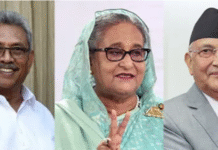
Covid-19 is back and it is back with a vengeance, as if to puncture the false confidence we were assuming about the antidotes. The rate of being cured made some of us think of the disease as nothing more than a regular flu, some kind of media sensationalism and corporate conspiracy. We forgot the way bodies were dumped in the streets, family members were abandoned, and ventilators were not to be found last year, this time around. We started herding in parties and in public places as if our proximity would ensure immunity and consequent indemnity. Our zestful celebrations will dethrone the crown-shaped virus. We did not hesitate to display our collective irresponsibilities on social media.
Maybe one of these days, we will have enough “netlore”—stories, memes, jokes and urban legends circulated over the internet—to laugh away the disease with its unbearable lightness of being, just like stories of the First World War superseded the Spanish Flu. People hardly talk about the 1918 pandemic that killed 50 million people worldwide against the 8.5 million people who died in the Great War. There are so many war stories to tell us about human courage, resilience, betrayal, love and hate. The sickness during the war, in contrast, appears to be a footnote in the grand scheme of history, and a reference point for our ongoing havoc.
 For all latest news, follow The Daily Star’s Google News channel.
For all latest news, follow The Daily Star’s Google News channel.
We have lost more than a year to this invisible enemy. Soon enough, we would like to forget this experience like a cricketing tour to Kiwi land where we saw black caps all over us. Surely, there are benefits in forgetting too. Neuroscientists believe that forgetting is an essential memory management system that sets aside unused memories to store new memories. This is called the active model of forgetting; the passive model is suggestive of biological decay of neurons that happen naturally.
But the way we are forgetting what we are preaching during this pandemic is tantamount to passive aggression. The routine circulars that inundate the media show that there is no coordination among different branches of administration. The tally of deaths is on the rise, the infection rate is on the rise. The curve is showing no sign of flatness as it swings back to climb new heights. The human miseries behind the pitiless data, however, remain unforgettable.
The forgetfulness-remembrance binary is best evident in our administrative paradoxes. How can one ministry say there will be no exams, while there is another ministry taking MBBS admission tests? How can one ministry say there will be no public gathering, while there is another one arranging national events? What kind of message does this forgetfulness suggest: a damage in the ageing brain or a memory management to keep the system running? On the glorious golden jubilee of the nation, all our focus has been on remembering. Ironically, it seems forgetfulness is creeping into the system. What lessons have we learnt in the last one year? What algorithm did we use to predict the rate of infection?
The rest of the world has successfully designed and devised various online protocols for assessments. If one can adopt to the virtual teaching and learning model, then why can’t one do the same with assessment? In the private system, the entirety of assessment/evaluation is done by individual teachers. We have relied on their professionalism, regardless of the examination modalities. So why stop now? Because students will cheat. How about the government decision to pass everyone without any exam whatsoever? It is interesting the way we selectively remember and forget.
We remembered to increase the fare of buses, forgetting that the coronavirus safety protocol was never lifted in the first place. We forgot to come up with safety gadgets or protective gear for ride sharing services during this entire year. And suddenly we remembered that strangers should not ride in such close proximity. Then, the bike riders and passengers blocked the city roads to remind us that it was inhumane to stop services or clamp extra charges without any forewarning and contingency plan.
We forgot to address the social inequalities that allowed the disease to spread fast. The privileged group that cursed the protesters occupying the streets demanding basic transportation services or livelihoods, forgot the others who endanger their lives to be exposed to the wrath of the disease while being on the streets. There are structural discriminations that lie deep within the system that needed to be addressed to make our celebrations meaningful.
We also need to remember the ones who chalked the disease up to be media sensationalism, downplaying the intensity of the disease. The callousness, forgetfulness and negligence are hurting us all.
Last week, I received an email from a designer who was supposed to deliver a web product for me: all five of his team members are affected, with two losing their family members. I am trying to forget the harsh email that I sent earlier to remind him of his professional lapses. The sooner we can forget this pandemic, the better. But let us not forget the ones who we have lost during this battle. And let us not forget: it ain’t over ’til it’s over.
Shamsad Mortuza is Pro-Vice-Chancellor of the University of Liberal Arts Bangladesh (ULAB), and a professor of English at Dhaka University (on leave).










